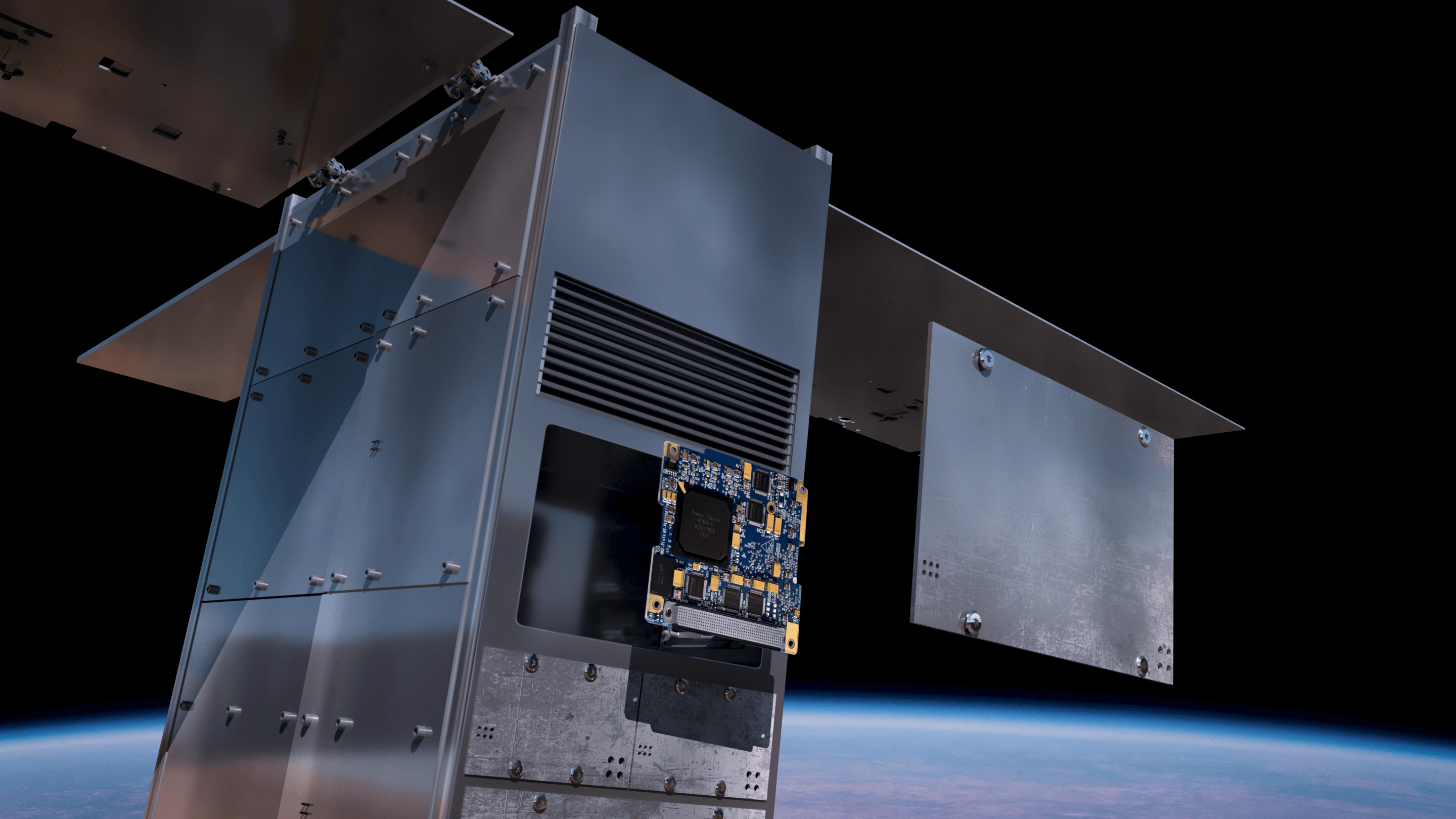In an interview with the Hidan site, the company's CEO Avi Shabtai explains that the amount of data collected by satellites is enormous and requires smart storage to filter the data that has come down to earth and send only the relevant data when the transmission window to the ground is short

Ramon.Space yesterday (Tuesday) unveiled a space storage product called: NuStream, which is capable of withstanding the most extreme conditions prevailing in space - extremely changing temperatures, and above all - radiation.
In an interview with the Hidan website and the CHIPORTAL website, Ramon Space CEO Avi Shabtai explains that the storage system will be able to contain up to 2 terabytes of data while reducing the weight and energy consumption relative to existing measures. "It's not that there are no storage solutions today, but they are very limited; To ensure that they are resistant to radiation, they are surrounded by radiation-blocking materials, which makes their production very expensive and also puts a lot of burden on the satellite, which is known to have a high launch cost (the cost of launching a satellite into low orbit around the Earth is currently estimated at $20 per kg, A.B. ")
He added that the new development is part of the company's new direction, according to which it does not sell only chips but entire systems based on its space chips.
Virtual radiation shield
"One of our most important developments is a virtual radiation shield (Virtual Radiation Shield) thanks to which NuStream enables the streaming of information from several sensors at the same time thanks to the Stream technology implemented in it. It contains Radiation Hardening technology, which includes algorithms whose role is to ensure that the information is stored safely and that it can be safely retrieved while making corrections if necessary."
The Virtual Radiation Shield is activated and managed by the 64RC processor, which is also an independent development of the Ramon.Space company.
Shabtai adds that the systems become smarter because they will be added with independent processing capability from the main processor of the satellite, so for example it will be possible to save only relevant images and delete images that contain, for example, clouds. This is important because a satellite is in contact with ground stations for ten minutes at a time and it is desirable that it send only the images (or any other kind of sensing data) that are relevant. Today the photography satellites send a lot of junk and broadcast it to the earth.
"Actually, you can increase the storage capacity as much as you want thanks to the modular architecture."
According to Shabtai, there are already customers for this system, some of them large companies in the field, but it is still impossible to reveal their identities.
In conclusion, Shabtai said: "We are solving the biggest challenges of the space industry: bringing into space computing capabilities similar to those that exist on Earth. We are proud to present the storage solution which is an important element in our space computing platform. We set a new standard for storage needs with very attractive size, weight and power."
Why do you actually need storage systems in space?
"The need for large storage volumes is only increasing on Earth and we see the same need developing at a rapid pace in space as well." says Dov Moran, chairman of the board of Ramon.Space and managing partner bGrove-Ventures. "As a seasoned entrepreneur in the storage market, I was very impressed by the technology and capabilities presented by the company to respond to the space market, which has grown significantly. The company's technology brings to the space market unique capabilities that enable a storage solution with very competitive volumes that are adapted to deal with the radiation conditions in space in order to answer the need to store a lot of information and enable the development of advanced applications for the various space missions." "The number of satellites that produce information in space continues to grow in light of the exponential growth in demand for a lot of information from space" says Dallas Casabowski, senior analyst at the company NSR (Northern Sky Research). "In order to meet the demand and allow the processing capabilities to continue to grow, there is an inevitable need for a hardened storage solution suitable for the space. Ramon.Space produces a revolutionary change in the context of information processing in space, with proven technology that will make satellites smart, autonomous and software-based. With the help of SSD-based computing and storage capabilities, the company brings data centers and data networking capabilities to space, which will enable computing services for satellites in orbit." Kasabowski concludes.
More of the topic in Hayadan:
